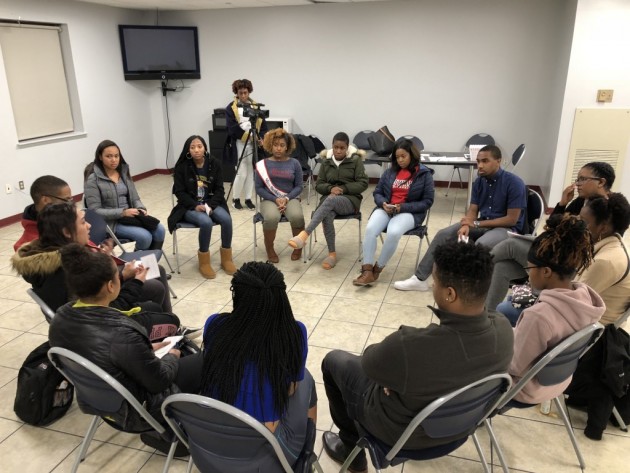The judicial system and its implicit biases were discussed in great detail at the panel Innocence Denied that took place at the 47th annual Congressional Black Caucus held in the nations capital recently.

Photo illustration of a man behind bars.
The 13th Amendment states “Neither slavery nor involuntary servitude, except as a punishment for crime whereof the party shall have been duly convicted, shall exist within the United States, or any place subject to their jurisdiction." This constitutional amendment is known to have ended slavery, but did it really? If you check the language, some argue that the practice of slavery was shifted to the prison system.
Panelist Rodney Roberts was exonerated of his previous conviction of kidnap and rape. He spoke of the pressure he felt by the justice system to plea guilty from many sides including the judge. “I said okay yeah I’d rather do two years instead of 24,” he said.
After serving his two years sentence Roberts thought he was a free man only to find out that he would have to serve more time in the Civil Jail system due to a law in New Jersey. After ten years and much effort Roberts was able to prove his innocence, with help from the victim who said she never identified Roberts nor had she ever seen him in her life. He was soon released only to find hardships back in society.
“The employees only want to hire the ex cons or guys on parole because of the tax cuts.” Roberts also struggled to find help from any organization in order to gain opportunities for former inmates especially those who were proven innocent
While some may think Roberts case is an extreme case for someone who is truly innocent, Georgetown Law professor Dr. Kristin Henning says ‘Rodney’s case is extreme but it is not uncommon.”
Dr. Henning went on to speak passionately about the negative effects of prematurely putting adolescents in jail.
“Just a small window of time in jail can change the path of a young persons life.” She continued her points by relating them to Kalief Browder who was wrongful accused of robbery at the age of 16 and spent three years in Rikers Island Prison before his release. Once released Browder committed suicide, with jail related hardships as his reasoning. Attorney Adam Foss continued the conversation by noting, “there is an implicit bias that young people of color face everyday.”
Dr. Tara Huffman who practices in Maryland shed light on the issue of bail bondsmen saying they should be “removed” from the system. Dr. Huffman also shocked the crowd by saying “in Maryland between 2011-2015 53% of people couldn’t pay bail set at $15,000” which was mirrored by her next fact that “black men’s bail is set 45% higher then that of their white counter part who have committed similar crimes.”
All of the panelists felt reforming the judicial system in imperative for future change and urged the audience to vote to create change.



